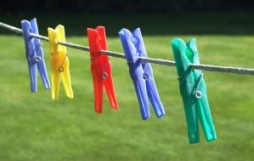
When is a friendship just a friendship and when could it become something more?
I cringe now when I think about it but I remember going on a skiing holiday with a group of friends when I was about 30. I ended up having lunch with a male friend of mine and I remember looking at him in a strange way. Could I fancy him? Could we make a relationship work? What would happen to our friendship if we tried to have a relationship? I didn't voice those questions but I did suggest that perhaps we could marry each other if we hadn't found anyone by 40. He didn't look very impressed!
So, can we turn a friendship into something else and what are some of the challenges or benefits if we do?
Friendship is an excellent starting place for any long-term relationship but some of us are under the misconception that a relationship has to begin with desire or it isn't going to work. The opposite is often true. Sometimes it is the sexual chemistry that prevents us seeing whether we are compatible with our clothes on. Perhaps that is why in Song of Songs 2:7 the daughters of Jersusalem are advised: "Do not arouse or awaken love until it so desires."
The great thing about a relationship that develops from a friendship is that you already know that you like each other and have fun together. The question then is does that 'like' have the potential to turn into love given the opportunity? Sometimes you can't manufacture the physical chemistry if it just isn't there – however good together you might look on paper. But if you do find the spark is there for you both, then you are likely to find you have a great basis for a solid relationship.
Taking a friendship to the next level is of course going to involve risk: the risk of the other person not reciprocating your feelings, the risk that if you do try to move things on that it won't work, and the risk that your friendship is worse off because of the experience. But all relationships involve some degree of risk and you have to weigh up the alternatives.
Are you happy to watch this person that you have strong feelings for go off with someone else because you never said how you felt? Are you just going to brood and let your thoughts for them grow in your head or bore your friends by talking about this person incessantly? Or are you going to dare to find out whether they feel the same about you? I always think it is better to suffer a few days of embarrassment than waste three years of your life 'loving' someone who isn't actually that into you.
Few of us relish the idea of putting ourselves in a situation that might result in someone we like rejecting us, especially if they are in the same church or home group.
But if you are strongly attracted to a friend then you have three choices as far as I can see: ignore the feelings and carry on as before, pick a moment when you are having fun together and make a pass, or brave it out and tell them how you really feel. The third option is the most authentic one and has the greatest likelihood of success. Great relationships require vulnerability and involve risk. If this relationship has any chance of working, then it has got to be a risk worth taking, hasn't it?

My advice would be don't be too heavy when telling a friend how you feel. Keep it light-hearted and let them know it is ok if they don't feel the same and that you hope it won't ruin your great friendship. That will hopefully prevent the conversation getting too embarrassing or awkward.
Hopefully, if the friendship is strong, it will survive any confession on your part and your friend will treat you with kindness and respect if it turns out that they don't share your feelings. If they don't act kindly – think of it as a lucky escape.
If they don't reciprocate your feelings, but there is stuff that they do that isn't helpful and it feels like they've been leading you on, you might need to explain that. It could be that they didn't realise how their behaviour was affecting you. Also, if someone says "No" try not to interpret that as "No... but maybe I'll change my mind one day". Instead you have a choice to accept the friendship for what it is, or if it is just too painful to be around them – to walk away.
If a friendship struggles in the aftermath of a confession of love, talk about it together. Explain that you are finding it a little awkward and discuss together how you might get back to normal. Bringing humour to the situation is often a good way to lighten the tension and break through any embarrassing moments.
If, on the other hand, you discover your friend feels the same way – you could be on to a great thing. Friendship is a great foundation for a strong and a healthy marriage.
Sarah Abell is a relationships coach and the founder of www.nakedhedgehogs.com


















